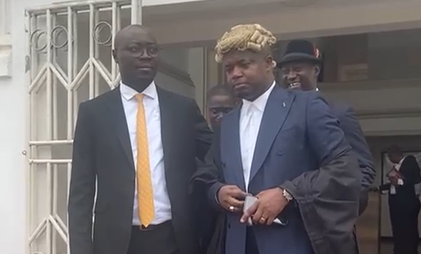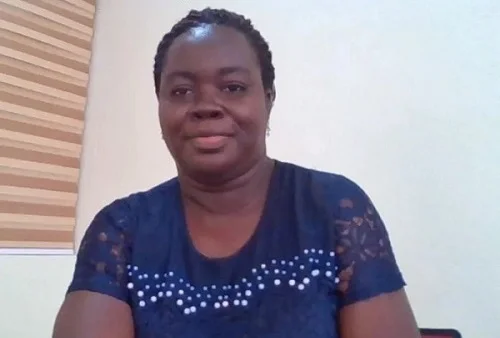Hot!
Ambulance case: Court of Appeal acquits and discharges Ato Forson

The Court of Appeal has acquitted and discharged Minority Leader, Hon. Cassiel Ato Forson in the ongoing Ambulance case.
The Court of Appeal has set aside the order for Dr. Ato Forson to open his defence by the trial Court in the ongoing ambulance case.
The Director of Legal Affairs of the National Democratic Congress (NDC), Edudzi Tamekloe In an interview on the Breakfast Show following the Court of Appeal’s decision, explained that the appeal was filed after the trial court dismissed their submission of no case, ruling that a case had been made against the accused persons.
“What happened is that after the prosecution called their witnesses, lawyers for the accused persons did what we call ‘a submission of no case’. The Court dismissed the submission of no case and ruled that case has been made against the accused person, warranting them to open their defence,” he said.
According to him, “We appealed that decision for us to open our defence. It is that appeal that today, the court of appeal by a 2-1 majority upheld, thereby acquitting and discharging Dr Cassiel Ato Forson and Richard Jakpa.”
“By this, the court further ruled that the order by the trial court judge for the accused persons to open their defence is hereby set aside,” he added.
The High Court, Accra, on June 6 dismissed the application by Minority Leader, Cassiel Ato Forson for mistrial and to undertake an enquiry into the conduct of the Attorney General in the ongoing Ambulance case.
According to the trial judge, the minority leader had not shown any statute provisions that warrant a mistrial in this case nor to enquire into the affairs of the Attorney General.
Dr Ato Forson on Monday, June 3 filed a supplementary affidavit in support of the motion on notice for an order of mistrial, injunction and/or stay of proceedings in the ongoing ambulance case against him and two others.
Lawyers for the Ajumako-Enyan-Esiam legislator cited a leaked tape between the Attorney-General, Godfred Yeboah Dame, and the third accused, Richard Jakpa, in which the former allegedly attempted to coach the third accused to implicate Dr Ato Forson in the ongoing trial, for the application.
Ato Forson’s legal team in the affidavit, argues that the Attorney-General misconducted himself and called for the prosecution to be declared a mistrial.
“It has become necessary to file this affidavit in order to bring to the attention of the Court and in the interest of justice, certain pertinent, material and relevant matters that have a bearing on the fair and just determination of the current application,” they added.
“That I say that I have since filing the instant application had the opportunity of listening to a recording widely circulating in the media depicting the voices of the Attorney-General and A3 fervently discussing the evidence the Attorney-General will prefer the said A3 to adduce at the trial. At the hearing of the instant application, my counsel will seek leave of the court to have the said audio recording played in open court,” they stated.
The Minority Leader further argued that failure to order a mistrial in such circumstances, where there appears to be a blatant disregard for the rule of law and ethical standards of prosecution by none other than the Attorney-General, could severely undermine public confidence in the judicial process.
The Minority Leader subsequently filed an appeal at the Court of Appeal which has been has been upheld by the Court in a 2:1 majority decision.
Businessman Richard Jakpa, the third accused in the Ambulance trial has also been freed by the court.
Source: Citinewsroom.com
Hot!
Swedru All Blacks back to winning ways, Roshan humble King Faisal

Sekondi Rospak FC made it eight wins in eight successive home games after three second-half goals from John Amoah, Joseph Ntow and Stephen Anthony Kofi. John Amoah opened the scoring in the 55th minute after a barren first half. Joseph Ntow added to the tally in the 56th minute before Stephen Anthony Kofi rounded things up in the 74th minute to give Rospak a 3-0 win over former Premier League side King Faisal.
Elsewhere at Swedru – leaders Swedru All Blacks humbled PAC Academy in an emphatic 2-0 win. Zayat Bubakari scored first for Swedru All Blacks in the 27th minute before Rudolf Junior Nana Kwasi Mensah made it 2-0 in the 34th minute. Swedru All Blacks are top of the table with 36 points – 4 points ahead of second placed Rospak FC.
Meanwhile, Former Premier League side Cape Coast Mysterious Dwarfs recorded their fourth successive home victory after beaten New Edubiase United 2-1 at the Robert Mensah Park. Enoch Odoom struck first for Cape Coast Mysterious Dwarfs in the 19th minute but Steven Asante equalized for New Edubiase United before halftime. After the interval, Godfred Eshun scored from distance in the 65th minute to help Cape Coast Mysterious Dwarfs secure all the points.
Here are the results in Zone Two

Hot!
Cervical Cancer alert: Avoid sex at early age

The Programmes Manager of Non-Communicable Diseases (NCDs) of the Ghana Health Service (GHS), Dr Mary Efua Commeh, has advised young girls to avoid sex at an early age.
This, she explained, will give the cervix the opportunity to mature before they become sexually active.
“You need to delay what we call the first sexual intercourse as much as possible to give the cervix the opportunity to mature before the person becomes sexually active,” she said.
Dr Commeh stated this in an interview with The Spectator in Accra on Tuesday as a part of the Cervical Cancer awareness month.
According to her, cervical cancer was the second leading female cancer in Ghana with a total of about 3,072 cases annually, and out of that, 1,815 deaths are recorded, representing more than 50 per cent.
She indicated that “If young girls are going to be sexually active, then you need to talk to your parents about being vaccinated.”
She explained that vaccinating young girls against human papillomavirus (HPV) has been found to be a very effective way of preventing cervical cancer.
“There are countries that started HPV vaccination years ago and they are not seeing any cervical cancers now because they would have eliminated most of the high-risk HPVs in their women. So if the high-risk HPV is not there, then obviously the results on cervical cancers are going to go down,” she added.
Dr Commmey said the HPV vaccination is recommended for young girls aged nine to 14 years, adding that it had been found to be highly effective, not just for cervical cancers but for other HPV-related cancers, such as anal cancers, cancers of the vagina, genital warts, amongst others.
She further elaborated that the idea is to put up a barrier before the HPV comes in and that once a young female encounters it, she is already protected.
She also mentioned that for cervical cancers, the main cause is called HPV infection, saying generally, all sexually active women acquire HPV at some point in their lives.
However, the Programmes Manager of NCDs at the GHS mentioned that the body has a way of clearing the HPV, explaining that it is a natural mechanism that goes on, unfortunately, there are a few women whose HPV persists.
Moreover, she noted that the numbers for Cervical Cancer tend to be much higher because at times, clients would wait, and try all sorts of medications before they finally report to the health facility saying “we actually lose some women before they get to the hospitals with over 75 per cent of the cases coming in its third and fourth stages.”
Dr Commey, therefore, called for public awareness while ensuring the availability of information for prevention and control.
By Jemima Esinam Kuatsinu















